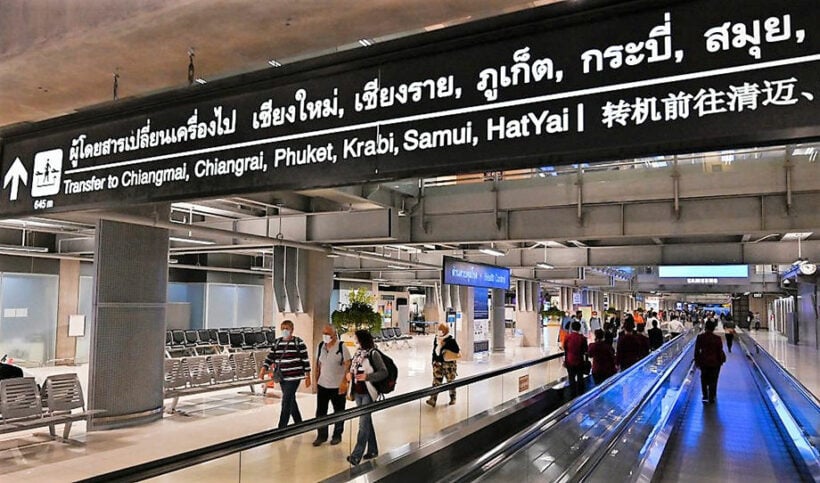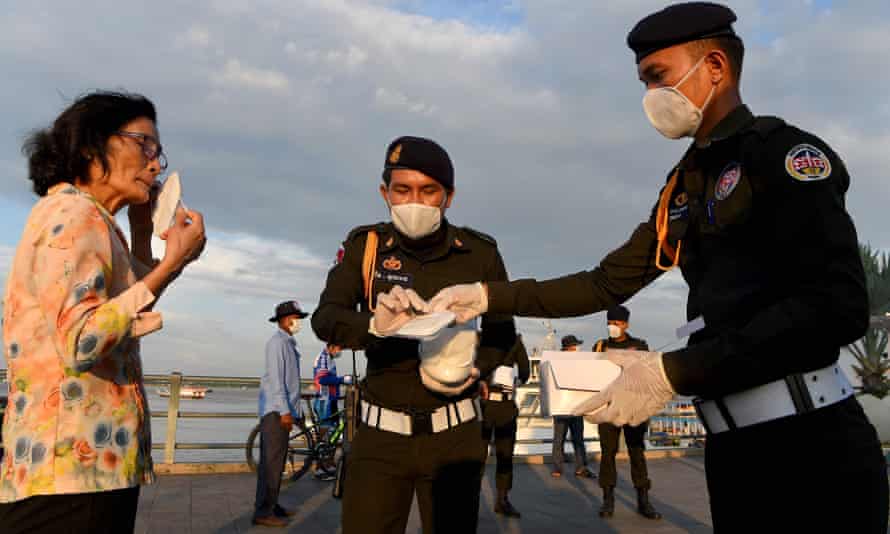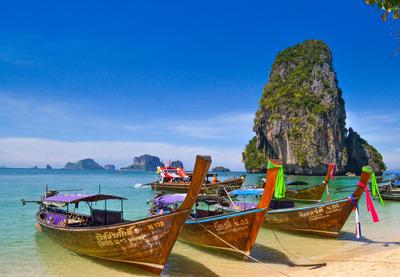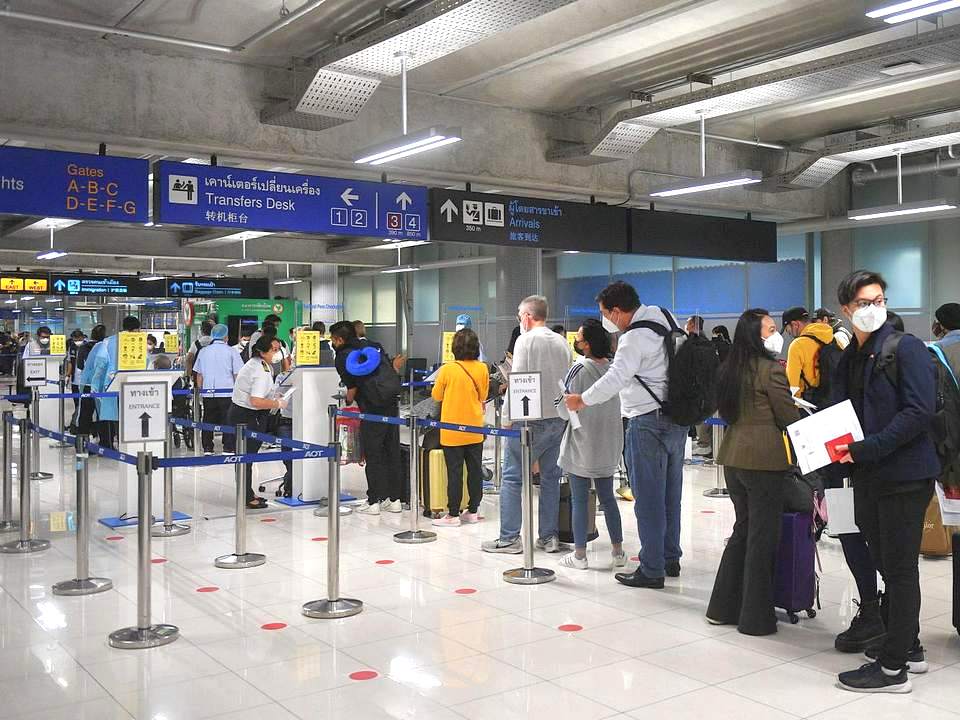PHUKET: Thai Smile, the domestic carrier operated by THAI Airways International, will increase its number of flights to Phuket in the New Year in the hope that other airlines will follow, leading to cheaper airfares to Phuket.
Phuket Governor Narong Woonchiew announced the news during a press conference broadcast live online this morning (Dec 16).
Governor Narong admitted that despite the multitude of domestic tourism campaigns currently underway, the number of Thai tourists coming to Phuket has fallen far short of enough to help support Phuket's devastated tourism industry.
In addition, Phuket currently has "no more than" 10 foreign tourists who recently arrived on the island.
"All of them are currently serving their 14-day quarantine now," he said.
PLEA TO BANGKOK
Governor Narong explained that the move by Thai Smile to increase their number of flights to Phuket followed a delegation he led to Bangkok earlier this month, accompanied by Tourism Authority of Thailand (TAT) Phuket office Director Nanthasiri Ronnasiri.
Also joining the delegation from Phuket were Phuket Tourist Association (PTA) President Bhummikitti Ruktaengam and PTA Vice President of Meeting & Special Activities Thaneth Tantipiriyakij, as well as Kongsak Kuupongsakorn, President of Southern Thai Hotels Association and Thaneth Tantipiriyakij, PTA's Vice President of Meeting & Special Activities.
TAT Deputy Governor Sirikorn Chiewsamut was present for the talks, held at the head office of Thai Airways International in Bangkok, as was Chaturon Chaiyakam, Deputy Director-General of the Ministry of Foreign Affairs' Department of Consular Affairs (DCA).
The meeting was dubbed by the PTA as a way to join forces to help save Phuket tourism.
The aim was to urge THAI Airways International to arrange direct international passenger flights to Phuket and for its dometic carrier subsidiary THAI Smile to reduce airfares to Phuket to help boost the number of domestic tourists visiting the island.
Mr Bhummitkitti said that Phuket's tourism industry could be saved if international flights started flying directly to Phuketm before continuing on to Bangkok, and if domestic flights to and from Phuket were cheaper to encourage more domestic tourists to visit the island.
Mr Bhummitkitti called for those present to help make direct international flights to Phuket from main cities in Europe, and notably Scandinavia, to respond to demand from tourists in those source markets.
"For four months already we have had private jets coming to Phuket and now we have private yachts. A lot more people want to come but they cannot because there are too many limitations," he said.
"So we want THAI Airways to operate direct international flights to Phuket as they did before.
From previous statistics, a lot of passengers preferred to come to Phuket first before travelling to Bangkok," he explained.
"If we can make this happen, a lot of tourists will come," Mr Bhummitkitti noted.
"We now have a lot of ALQ hotels with thousands of rooms available [in Phuket], but at this stage we have not more than 20 rooms have been used," he pointed out.
As of Monday (Dec 14), the Phuket Provincial Health Office reported that 21 hotels in Phuket had now been ratified to operate as ALQ venues, altogether offering 2,554 rooms available.
The rooms are currently empty of guests as no international tourists are allowed to land directly in Phuket.
The PTA will file an urgent request to the economic adviser to the prime minister and to the CAAT [Civil Aviation Authority of Thailand] to have a meeting to set maximum rates for ticket prices, a statement by the PTA quoted Mr Bhummitkitti as saying.
"The PTA also proposes that THAI Smile have charter flights from northern and northeastern Thailand to the South," the statement added, presumably so that tourists could be brought to other tourism destinations in the South without any risk to domestic passengers travelling on regular scheduled domestic flights.
BALANCE NEEDED
Governor Narong told the meeting a balance must be struck between quarantine restrictions and allowing the economy to recover.
Stimulating domestic tourism to offset the loss of revenue from foreign visitors had produced satisfactory results with about 200,000 visitors arriving in Phuket last month, according to the local estimates, he added.
Domestic visitors have been keeping Phuket's tourism industry afloat, but there would have been more tourists if airfares, particularly during long weekends, were not so expensive, Governor Narong explained.
Gov Narong added that airlines should add more flights with the expectation that it could lower the ticket prices.
However, for the tourism industry to survive and thrive again, more international visitors were needed, Governor Narong said.
The meeting discussed reinstating direct flights from European countries whose nationals make up the traditional mainstay of long-stay visitors to Phuket.
The air links which should be given priority are those from Frankfurt and Copenhagen to Phuket with onward flights to Bangkok.
TAT Deputy Governor Sirikorn Chiewsamut said travel demand for Phuket remains strong in some international tourist segments despite the 14-day mandatory quarantine regulation.
Although international arrivals are nowhere near the pre-COVID level at the start of the year, a return of direct commercial flights will help revive flagging tourism, the meeting was told.
Department of Consular Affairs (DCA) Deputy Director-General Chaturon Chaiyakam said the Ministry of Foreign Affairs has relaxed restrictions in granting tourist visas. Previously, tight restrictions were in place for visa applications sought by people from countries with widespread infections.
Jesada Chandrema, THAI's Acting Vice-President for Sales, said the airline has taken note of the calls for resumption of direct scheduled flights to Phuket from Europe. He described the proposal as "interesting and possible".
THE GOOD NEWS
Governor Narong this morning announced, "After talking in Bangkok with Thai Airway CEOs, they agreed to add more flights from Bangkok to Phuket, but said that it would not happen until after January 1. The reason depended on the supply and demand of price determination in the market."
"If Thai Airways increases the number of flights to Phuket, then other airlines might adjust their strategy afterward. This could result in cheaper flights to Phuket, and encourage more travellers to come," he explained.
Regarding the request to have international flights land directly in Phuket before continuing on to Bangkok, Governor Narong said, "We expect to get an answer about this soon."
OUT OF POCKET
Governor Narong this morning also pointed out the reality of the current state of economic impact on Phuket.
"I admit that Phuket province has lost so much income during this time. I've asked many people about the number of tourists in Phuket…This year, the income is very low," he said, adding that people in Phuket had "lost a lot".
"Let's compare. We used to receive 10 million foreign tourists per year, and only 200,000 Thai tourists visited Phuket last month. Normally, Thai tourists make about 4 million trips to Phuket per year.
"So I am not surprised that the income is so much less. I have to think about how to figure it out. The flights are one option to bring people to Phuket. The aim is to save Phuket's tourism industry by having additional flights," he said.
Governor Narong pointed out that Phuket's distance from Bangkok was a major obstacle in attracting domestic tourists.
Driving to the island would take too long when Thais are looking to enjoy just a short vacation, and the cost of a flight to Phuket was too prohibitive, he said.
"If they are travelling as a group, the cost of travel will be much more expensive. For example, for three people travelling together the cost of the flights and other stuff will be about B30,000.
"Instead, people decide to travel to places closer to home. There are beaches and mountains closer to Bangkok that they can travel to that are cheaper to reach and leave them much more of the same budget to spend on other things there instead of Phuket," Governor Narong said.















